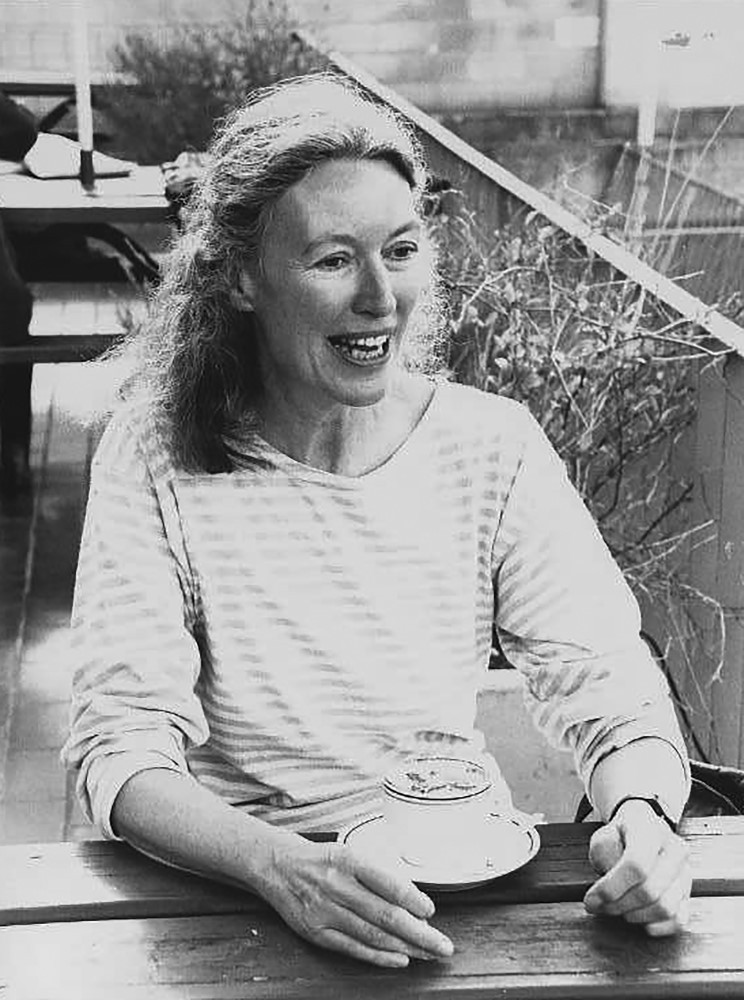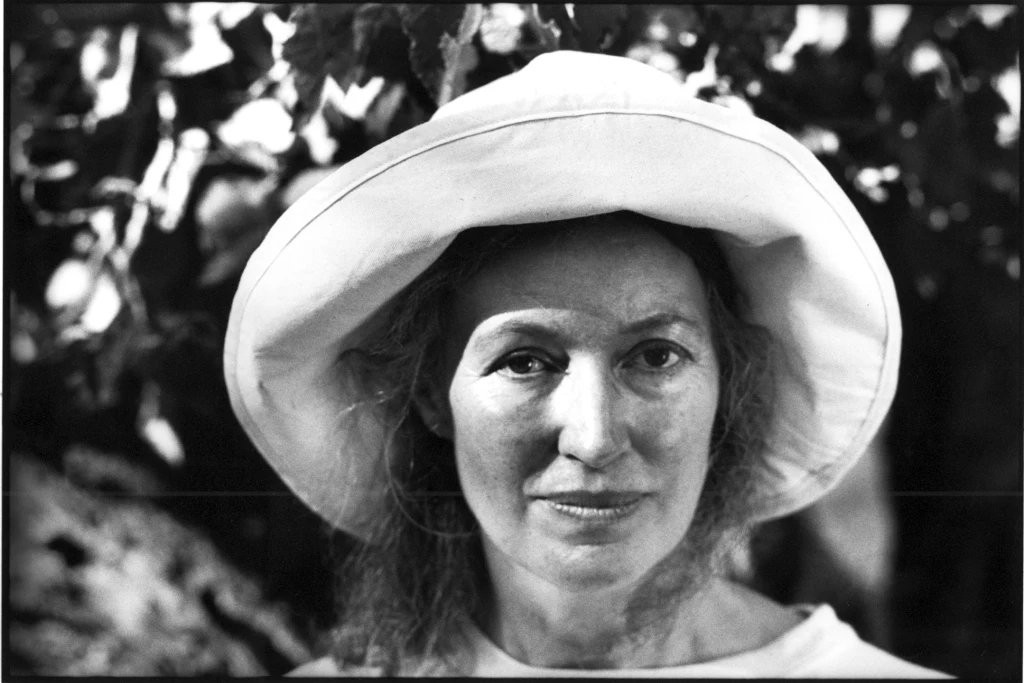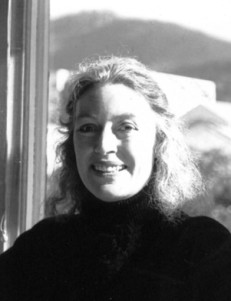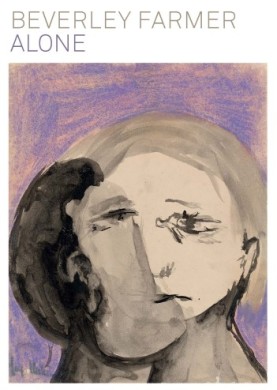Beverley Farmer
1941–2018
Mac Robertson 1954-1957,
BA University of Melbourne 1960
Beverley Farmer was born in Melbourne in 1941. She graduated as the Dux of Mac. Robertson in Humanities, with prizes in English Literature, French, German and British History. She received the University of Melbourne’s Women’s Major Residential Scholarship, where she graduated with a BA in 1960. At the age of 24 she and her husband travelled to Greece, where they lived, for three years, under the Junta in his parents’ village on the Macedonian plain north of Thessaloniki.
Farmer's first book, Alone, was written in Greece and published in 1980. It was followed by eight books: novels, short-stories, and essays. Milk, her second book, won the NSW Premier's Award for Fiction; The House in the Light was shortlisted for the Miles Franklin Award. Throughout the decades Farmer has attracted a devoted following, admired by readers and fellow writers alike. English and Literature students across Australia are familiar with Beverley Farmer’s short story collections, as they often studied and appreciated in classrooms across the country
Writers often imagine worlds so vivid they come to life, but it is a refined ability to transcribe nature without diminishing or elongating the distance between it and us. I have enjoyed this ability to celebrate the nomadic nature of becoming between two things in the works of the great South American writers like Julio Cortazar, Jorge Luis Borges and Clarice Lispector. Among Australian authors, Farmer embodied this ability in a rare way, and it was one of her finest gifts to readers. Read more...
– Samantha Trayhurn
Vale Beverley Farmer (1941-2018)
Lyn Jacobs, Flinders University
Farmer's contribution to Australian Literature is notable for its quality, diversity and innovation. A highly skilled observer, Beverley Farmer leaves us short stories, novels, essays, poetry, photography, and insightful criticism and, perhaps most memorably, a prose style of great beauty and precision.
These preferences were telling: a meditative poet who celebrates the wonder, fragility and tenacity of human existence, a writer of fiction whose exploration of the metaphysics of being and spiritual journeying and a pioneering writer of short fiction whose insightful, non-romantic portraits of relationships and women’s lives became an exemplar for women writers in this country.
Those of us who met her on rare public appearances or at residencies in Universities nationally and internationally will remember a reserved, intelligent, gracious woman who inspired students with her quiet but evident passion for writing. Her contribution to Australian Literature is notable for its quality, diversity and innovation. Read more

In Memoriam Beverley Farmer
Prof. Ivor Indyk, Giramondo Publishing
Farmer's characters are often portrayed in ‘in-between’ states, in transition – culturally, socially, physically – and she pursues their fluctuating thoughts and emotions with fine discrimination, and a determination to bring to the surface the anxieties, the anger, the impulses to cruelty – and the ecstatic moments too – which lie within those thoughts. There is no aspect of experience she is not prepared to explore, and observe, in the most exacting detail.
Beverley Farmer is important to Australian literature for many reasons. She was one of the first to carry the cultural elements of the post-war migration into the mainstream of Australian writing, combining Greek and Mediterranean subjects and ways of seeing with the more familiar northern European influences, and those of Asian Buddhism as well. She was one of the leading figures in the renaissance of Australian women’s writing in the 1980s, and one of the boldest. This was at a time when short story collections by women writers were the first thing you saw when you entered a bookshop, and her books Milk and Home Time were chief amongst them. We are used to thinking of the encyclopaedic reach, from the detail to the horizons it envisions, as a masculine aspiration (in Les Murray, Murray Bail or Gerald Murnane for example) – but in works like A Body of Water, The Bone House and This Water, Beverley Farmer claimed this aspiration for women writers, and demonstrated her mastery of it. To my mind it is her bending and opening up of literary form to accommodate this large vision – which she saw as the ‘whole symbolic world in every one of us, teeming with images, dreams, reflections, speculations, memories’ – that is her great contribution to Australian literature. Read more
Gillian Bouras, Remembering my friend Beverley Farmer
It's a deluded, dream-like state, this, and all too often we are forced, joltingly, to wake up and cope with what we consider to be an unnatural death. It has been written that our losses are like worm-casts, growing beside us and accumulating for as long as we ourselves live. But I think losses are more often like looming mountains.
Writer Beverley Farmer died on 16 April. She and I had been friends, albeit usually long-distance ones, for more than 30 years. It seems to me now that we had so much in common that friendship was almost inevitable: it was just a matter of timing that first meeting.
Much of an age, we had been brought up in a similar way, I deduced; we attended the same university college, although not at the same time, and her most influential teacher became my university mentor. We married Greek men, and Beverley's son is the same age as my eldest son; eventually we both, to our great joy, acquired granddaughters. As well, we were both published by that trail-blazing firm McPhee Gribble. And we were letter-writers. Read more
The Patrick White literary award was created in 1972 to recognise writers ‘who have made a substantial contribution to Australian literature but... may not have received due recognition for their work’. In 2009 the Victorian novelist, essayist and poet, Beverley Farmer, is its worthy recipient. Read more





